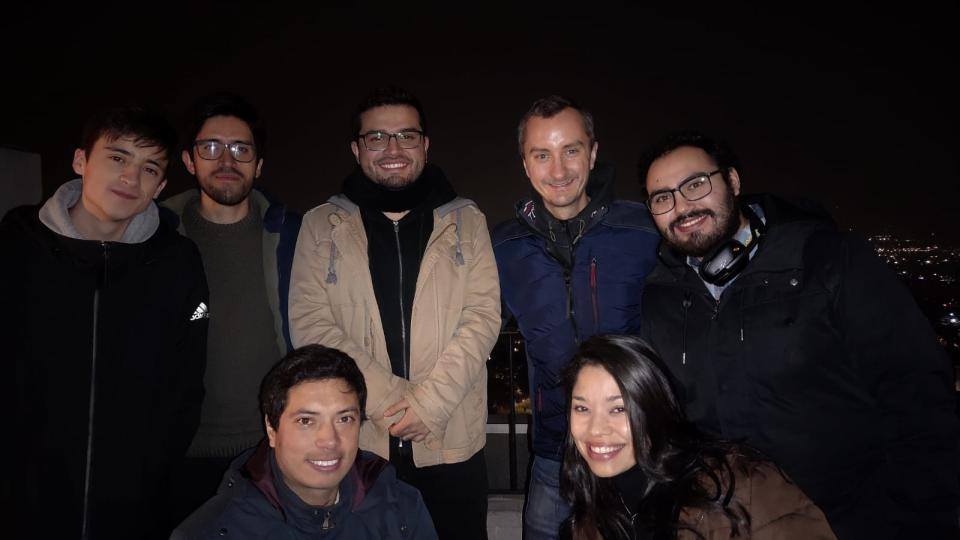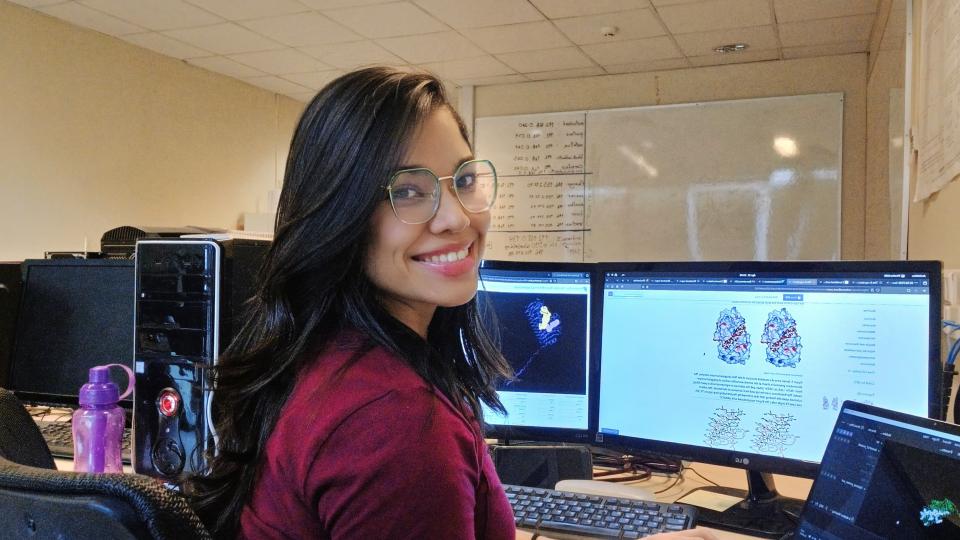Pathogenicity is a highly specific process in which a pathogen releases molecules that recognize a particular biochemical site of its host to emit a signal or elicit a pivotal step for the progression of the disease. These molecules are called effectors.
Gabriela Nicolle Ramos went from Universidade Estadual de Santa Cruz to Pontificia Universidad Católica de Chile to train in the latest bioinformatics and molecular modelling tools by identifying effector proteins of 𝘊𝘦𝘳𝘢𝘵𝘰𝘤𝘺𝘴𝘵𝘪𝘴 𝘤𝘢𝘤𝘢𝘰𝘧𝘶𝘯𝘦𝘴𝘵𝘢. This fungus is wreaking havoc in cocoa plantations worldwide.
Gabriela's work centered on understanding the shape and properties of effector proteins to elucidate their mode of attack within the plant's cell, and then using computer-generated predictions of their interactions to identify known molecules that might block their activity.
This research path to preserving cocoa production relies on decades (even centuries) of documentation by botanists, agronomers, molecular biologists, and bioinformaticians who have constructed the biological databases and fed the AI models that allow computers to predict the form and function of biological molecules.
We also thank Drs. Ronan Xavier Corrêa and Andreas Shuller for fostering the latest technologies that could solve some of the challenges to LAC's sustainable development.



